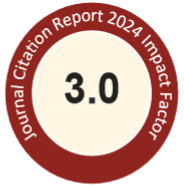Keywords
Birth weight, Drug criminal record, Duration of drug use, Maternal illegal drug use, Paternal illegal drug use
Abstract
This study investigates possible links between maternal illegal drug use during pregnancy and up to two years before pregnancy with birth weight (BW), and explores the potential role of paternal illegal drug use on low birth weight. A population-based retrospective cohort study was conducted that linked four national databases in Taiwan. A total of 1,698 subjects with a criminal record of schedule I or II illegal drug use within two years before pregnancy were enrolled as the drug-exposed group, and 16,980 matched subjects were enrolled as the unexposed group. Multivariate analysis of BW found a decrease of 108.63 g (95% CI: ¡172.29, ¡44.96), 79.67 g (95% CI: ¡116.91, ¡42.43), and 69.78 g (95% CI: ¡106.71, ¡32.84) in newborns whose mothers used illegal drugs only during pregnancy (period I), only within one year before pregnancy (period II), and only within the second year before pregnancy (period III), respectively. Paternal use of illegal drugs before maternal pregnancy was significantly associated with low birth weight. The paternal effect on low birth weight was opposite the maternal effect. The adverse effect of illegal drug use on birth weight existed even if the mother did not use drugs during pregnancy but had ever used drugs during the two years before pregnancy. Paternal factors' contribution to low birth weight persisted, and the decrement of BW was even greater than the maternal effect within one or two years before pregnancy. Maternal and paternal illegal drug use may have a lasting effect on their offspring's birth weight.
Recommended Citation
Lin, Ching-Heng; Lin, Wei-Szu; Wang, I-An; Hsu, Jui; Wu, Shiow-Ing; and Chen, Chuan-Yu
(2021)
"Adverse effects on birth weight of parental illegal drug use during pregnancy and within two years before pregnancy,"
Journal of Food and Drug Analysis: Vol. 29
:
Iss.
2
, Article 12.
Available at: https://doi.org/10.38212/2224-6614.3355
Graphical Abstract
Research highlights_12.pdf (88 kB)
Research Highlights
Creative Commons License

This work is licensed under a Creative Commons Attribution-Noncommercial-No Derivative Works 4.0 License.
Included in
Food Science Commons, Medicinal Chemistry and Pharmaceutics Commons, Pharmacology Commons, Toxicology Commons


Abstract Image